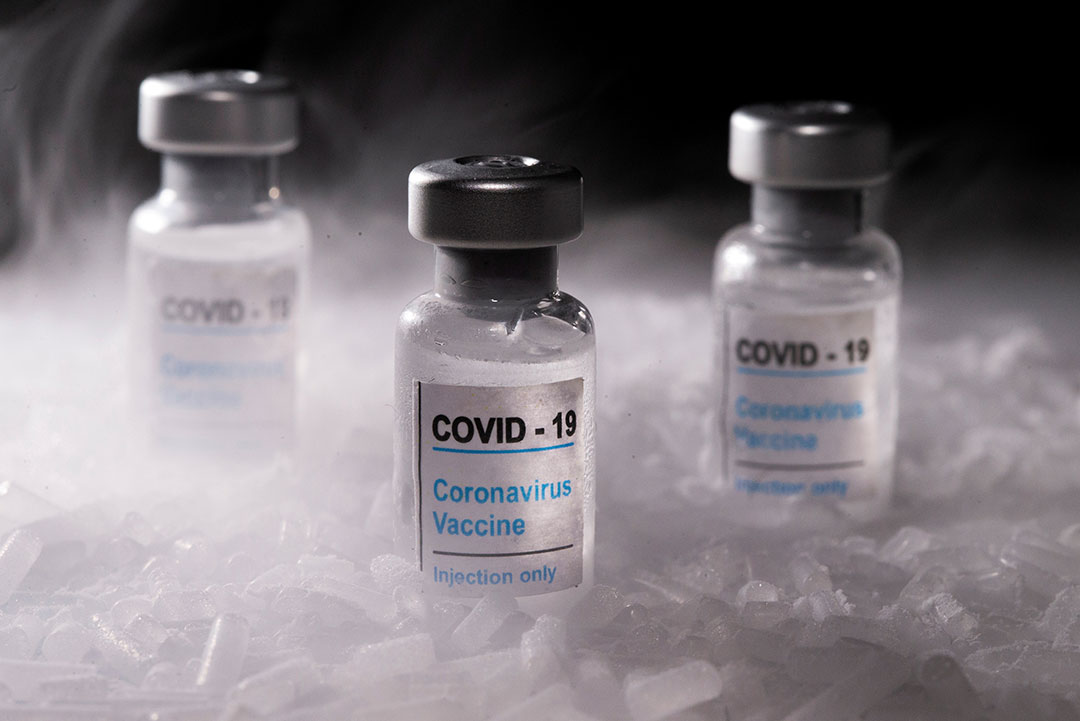The Race is On to Provide Ultra-Cold Vaccine Storage
ADF STAFF
As African nations prepare for a vaccine against the COVID-19 pandemic, public health officials across the continent are looking at ways to store, transport and distribute a vaccine that requires an unbroken chain of ultra-low temperatures.
Those are the conditions the world’s first two COVID-19 vaccines demand. At the moment, few facilities in Africa can meet them.
However, Dr. Richard Mihigo, deputy incident manager for emergency response at the World Health Organization’s (WHO) Brazzaville regional office, sees potential in the recent response to the Ebola outbreak in the North Kivu region of the Democratic Republic of the Congo.
The project used an Ebola vaccine that had to be stored at minus 80 degrees Celsius, far below the temperature of most vaccine storage facilities.
Despite that, teams were able to store and transport the vaccine by motorbike deep into the countryside using portable freezers able to maintain ultra-low temperatures for as much as a week. In that way, they were able to vaccinate 300,000 people in the outbreak zone. A similar vaccination effort recently helped end the monthslong Ebola outbreak in Equateur province.
“We are not starting from scratch in Africa,” Mihigo told Quartz Africa. “There are some experiences some countries have learned in the past.”
COVID-19 vaccines recently announced by Pfizer and Moderna must be stored at minus 80 and minus 20 degrees Celsius, respectively. Both vaccines rely on genetic material known as mRNA that degrades rapidly at higher temperatures.
Although the DRC experience showed what is possible, it also was a relatively small event compared with vaccinating nearly 800 million people across the entire continent to reach herd immunity, according to Dr. Nicaise Ndembi, senior science advisor on vaccines for the Africa Centres for Disease Control and Prevention.
“For Ebola, it wasn’t at this scale,” Ndembi told ADF. “The traditional vaccines that we have usually do not require that low temperature. It’s kind of unprecedented in terms of vaccine deployment and logistics that are required in this particular case.”
A more common scenario: Bwayira hospital in Lilongwe, Malawi, which has limited cold-chain capacity and no ability to store the new vaccines gaining attention worldwide, according to Dr. Nonhlanhla Rosemary Dlamini, the WHO’s representative in Malawi.
According to a survey, about 30% of Africa’s 54 nations are prepared to receive and distribute a COVID-19 vaccine, Ndembi said. The rest will need help to get there.
Even larger, more prosperous countries such as Nigeria and South Africa lack the large-scale capacity for ultra-cold storage.
“I don’t know if we could really even contemplate an mRNA vaccine with our present setup,” Barry Schoub, chair of South Africa’s ministerial advisory committee on coronavirus vaccines, told the country’s News24.
The African Union and Africa CDC say a continentwide COVID-19 vaccination plan will cost about $12 billion. The African Export-Import Bank has committed $5 billion. The rest will come from the World Bank and other donors.
The cost includes building human and physical infrastructure to provide 1.5 billion doses of vaccine across the continent. The fund will help countries work together to buy doses to lower the cost. The AU plans to provide technical advice to its member nations to help them establish such as system.
Ndembi said the Africa CDC expects to spend the first quarter of 2021 establishing the systems needed to launch a continentwide vaccination program, which would start in the second quarter.
“We’re going to take the first quarter to be sure we have everything in place to roll out the vaccination,” Ndembi said.
In the meantime, as many as 10 other vaccines are in development, including at least one — the Oxford AstraZeneca vaccine — that can be stored at the more commonly achieved temperature of 2 to 8 degrees Celsius. Pfizer also is working on a freeze-dried, powdered form of its vaccine that could be easily stored and transported, then reconstituted with water.
Those and other vaccine advancements could bode well for African nations by cutting down on the costs of providing ultra-cold storage, Ndembi said.
“We might even get a vaccine with a one-dose regimen,” Ndembi said. “That would be perfect.”


Comments are closed.